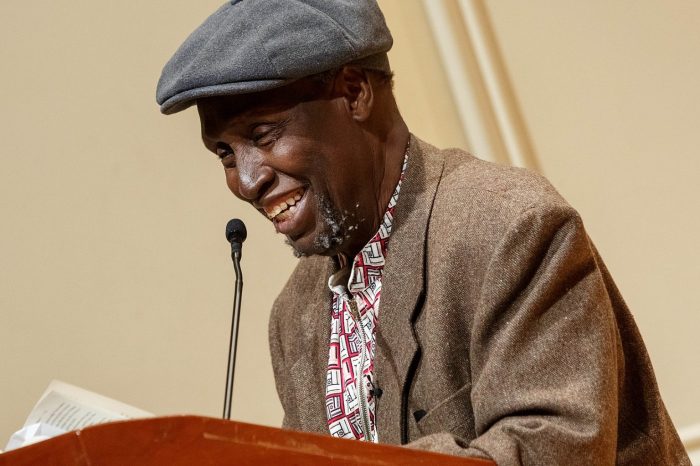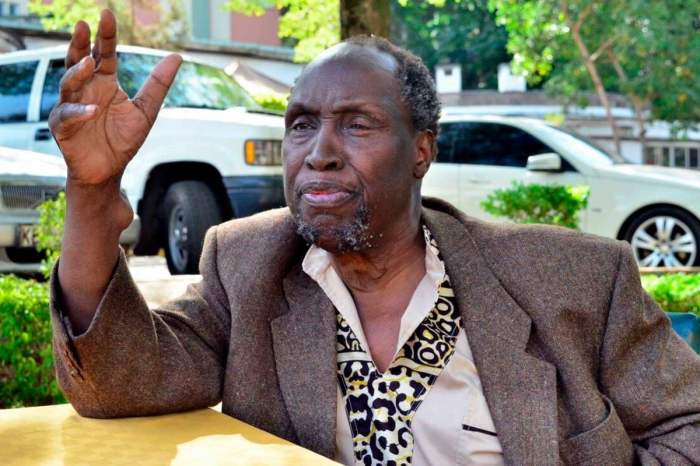The return ngugi wa thiong’o – The return of Ngugi wa Thiong’o to Kenya marked a significant moment in the nation’s literary and political landscape. His literary works, political activism, and enduring legacy have left an indelible mark on Kenya and beyond.
Upon his return, Ngugi wa Thiong’o’s literary contributions explored themes of social justice, cultural identity, and the postcolonial experience. His writings employed innovative styles and techniques, challenging literary conventions and sparking dialogue on pressing issues.
Ngugi wa Thiong’o’s Return to Kenya: The Return Ngugi Wa Thiong’o
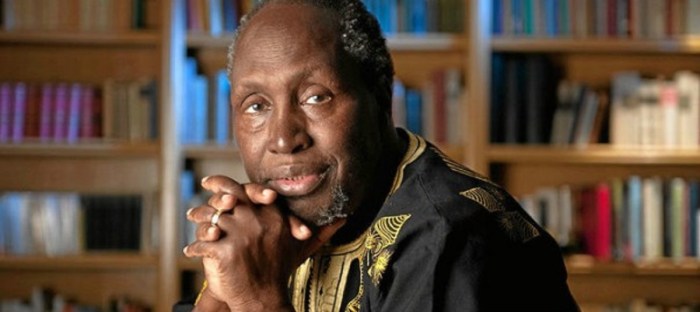
Ngugi wa Thiong’o’s return to Kenya after 22 years of exile marked a significant moment in the country’s literary and political history. His homecoming in 2004 was met with both celebration and controversy, as he had been a vocal critic of the Kenyan government during his time abroad.
Impact on Kenyan Literary Landscape
Thiong’o’s return had a profound impact on the Kenyan literary landscape. He brought with him a wealth of experience and knowledge, having lived and worked in various countries during his exile. His writings, which often explored themes of social justice and political oppression, resonated with a new generation of Kenyan writers.
Thiong’o’s return inspired and encouraged them to challenge the status quo and to use their voices to speak out against injustice.
Impact on Kenyan Political Landscape
Thiong’o’s return also had a significant impact on the Kenyan political landscape. He became a vocal advocate for democracy and human rights, using his platform to criticize the government’s policies and to call for change. His presence in Kenya served as a reminder of the country’s past struggles and the need for continued vigilance against authoritarianism.
The return of Ngũgĩ wa Thiong’o, the renowned Kenyan writer and intellectual, has sparked renewed interest in his work and ideas. His vision of a “great nation of futurity” ( the great nation of futurity ) resonates deeply with those who believe in the transformative power of literature and education.
As Ngũgĩ’s influence continues to grow, his legacy as a beacon of hope and inspiration for generations to come will undoubtedly endure.
Ngugi wa Thiong’o’s Literary Contributions Post-Return
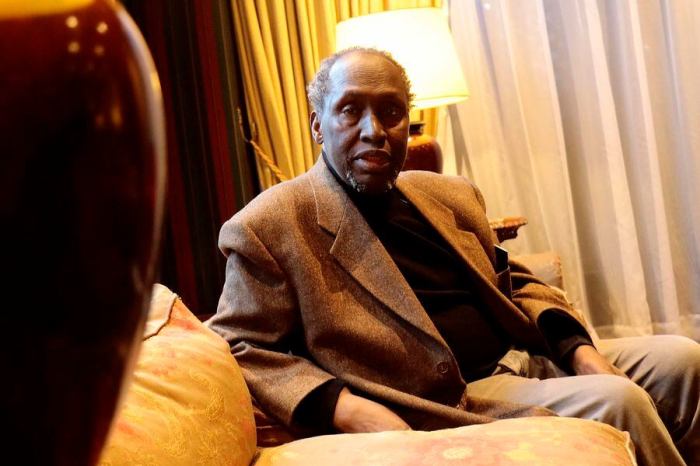
Upon his return to Kenya, Ngugi wa Thiong’o continued to produce a prolific body of literary works that showcased his enduring commitment to social justice and the African experience. His post-return writings delved into themes of cultural identity, neocolonialism, and the resilience of the human spirit.
Stylistically, Ngugi’s post-return works exhibited a departure from his earlier experimental modernist style. He adopted a more accessible and realistic approach, employing straightforward language and narrative techniques to convey his messages to a wider audience.
Themes in Ngugi’s Post-Return Works
Ngugi’s post-return works consistently explored themes related to:
- Cultural Identity:Ngugi explored the complexities of cultural identity in a postcolonial context, examining the struggles of individuals to reconcile their traditional roots with the influences of Westernization.
- Neocolonialism:Ngugi continued to critique the neocolonial forces that he believed were undermining African sovereignty and self-determination.
- Resilience:Despite the challenges faced by his characters, Ngugi’s works emphasized the resilience of the human spirit and the power of collective action.
Literary Techniques in Ngugi’s Post-Return Works
Ngugi’s post-return works employed a range of literary techniques to convey his themes effectively:
- Oral Storytelling:Ngugi incorporated elements of oral storytelling into his narratives, drawing on the rich traditions of African folklore.
- Symbolism:Ngugi used symbolism to represent complex ideas and emotions, often employing natural elements and cultural artifacts as symbols.
- Satire:Ngugi’s works often employed satire to critique social and political issues, using humor and irony to expose hypocrisy and injustice.
Ngugi wa Thiong’o’s Political Activism Post-Return

Upon his return to Kenya, Ngugi wa Thiong’o continued to be an outspoken critic of the government and advocate for social justice. He joined the struggle against the authoritarian rule of President Daniel arap Moi, who had been in power since 1978. Thiong’o’s activism took various forms, including writing, public speaking, and organizing political movements.
Challenging the Moi Regime
Thiong’o’s writings and speeches often criticized the Moi regime for its suppression of dissent, corruption, and human rights abuses. He played a significant role in the formation of the Movement for Multi-Party Democracy (MMPD), a coalition of opposition groups that challenged Moi’s single-party rule.
Thiong’o’s activism contributed to the growing momentum for political reform in Kenya, which eventually led to the reintroduction of multi-party democracy in 1991.
Promoting Social Justice
In addition to his political activism, Thiong’o also focused on promoting social justice and economic equality. He advocated for land rights for the poor, education for all, and healthcare for the marginalized. Thiong’o’s writings and activism raised awareness of these issues and helped to mobilize support for social change.
Impact of Activism
Ngugi wa Thiong’o’s political activism post-return had a significant impact on Kenyan society and politics. His writings and speeches inspired and mobilized opposition to the Moi regime, contributing to the struggle for multi-party democracy. His advocacy for social justice raised awareness of important issues and helped to shape public discourse.
Thiong’o’s activism continues to influence political and social movements in Kenya and beyond.
Ngugi wa Thiong’o’s Legacy and Influence
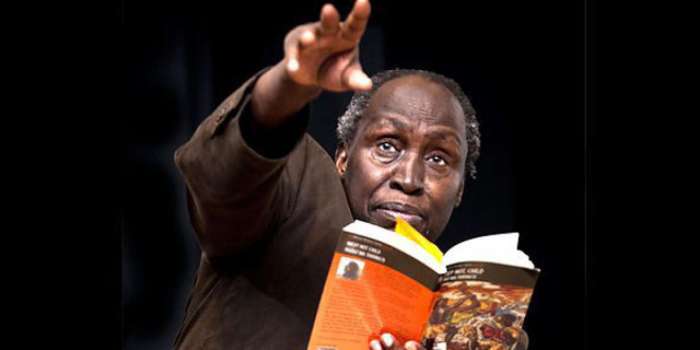
Ngugi wa Thiong’o’s literary and political legacy is immense, both in Kenya and beyond. His work has had a profound impact on African literature, postcolonial studies, and global activism.
Ngugi’s literary work is known for its powerful depiction of the struggles faced by ordinary Kenyans during and after the colonial period. His novels, such as Weep Not, Childand A Grain of Wheat, have been translated into dozens of languages and are widely read around the world.
Ngugi’s work has helped to raise awareness of the plight of the oppressed and has inspired generations of writers and activists.
Ngugi’s Impact on African Literature, The return ngugi wa thiong’o
Ngugi is considered one of the most important figures in African literature. His work has helped to shape the development of African literature and has inspired a new generation of African writers. Ngugi’s work has been praised for its realism, its political insights, and its commitment to social justice.
Ngugi’s Impact on Postcolonial Studies
Ngugi’s work has also had a significant impact on postcolonial studies. His work has helped to challenge the traditional narratives of colonialism and has provided a new perspective on the relationship between Africa and the West. Ngugi’s work has been influential in the development of postcolonial theory and has helped to shape the way we think about colonialism and its legacy.
Ngugi’s Impact on Global Activism
Ngugi’s work has also had a significant impact on global activism. His work has helped to raise awareness of the plight of the oppressed and has inspired people around the world to fight for social justice. Ngugi’s work has been influential in the development of global social movements and has helped to shape the way we think about activism and social change.
FAQ Overview
What was the significance of Ngugi wa Thiong’o’s return to Kenya?
His return marked a turning point in Kenya’s literary and political landscape, allowing him to engage directly with the issues facing his nation.
How did Ngugi wa Thiong’o’s literary style evolve after his return?
He embraced a more accessible and engaging style, using oral storytelling techniques and incorporating elements of popular culture.
What were the key themes explored in Ngugi wa Thiong’o’s post-return works?
He focused on issues of social justice, cultural identity, and the challenges faced by postcolonial societies.
